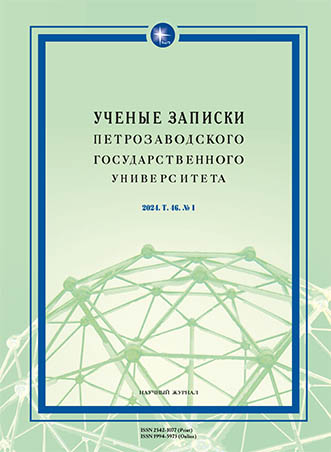РЕЦЕПЦИЯ «ПОЭТИКИ» АРИСТОТЕЛЯ В РАБОТАХ ЛИЦЕЙСКИХ УЧИТЕЛЕЙ А. С. ПУШКИНА
RECEPTION OF ARISTOTLE’S POETICS IN THE WORKS OF ALEXANDER PUSHKIN’S LYCEUM TEACHERS
Author(s): Anna Yurievna NilovaSubject(s): Language and Literature Studies, Aesthetics, Russian Literature, Ancient Philosphy, Theory of Literature
Published by: Петрозаводский государственный университет
Keywords: Aristotle; N. F. Koshansky; A. I. Galich; Poetics; formation of Russian theory of literature; tragedy; catharsis;
Summary/Abstract: The first half of the XIX century is the period of formation of Russian literary criticism. However, the works of theorists from this significant period have practically not been studied. This gap is especially significant when it is associated with teachers who had a significant impact on the formation of literary concepts of several generations of philologists. All of this substantiates the relevance and novelty of the research topic. The article describes the reception of the main provisions of Aristotle’s Poetics, which formed the basis for the European literary theory of literature, in the works of the Imperial Lyceum’s teachers N. F. Koshansky and A. I. Galich. It is noted that Aristotle was an absolute authority for these two authors, however, the assimilation of this Greek philosopher’s conceptual system took place in the context of its interpretation by European aesthetic theories. Thus, Koshansky agrees with Aristotle in that art brings us pleasure, and this idea supports the hedonistic theory of catharsis reflected in Koshansky’s works. Galich, being a Schellingist, develops the idea of German romanticism about fate as the primary force opposing the hero of tragedy, and at the same time defends the classic rule of three unities absent from Aristotle’s works.
Journal: Ученые записки Петрозаводского государственного университета
- Issue Year: 46/2024
- Issue No: 1
- Page Range: 76-81
- Page Count: 6
- Language: Russian

